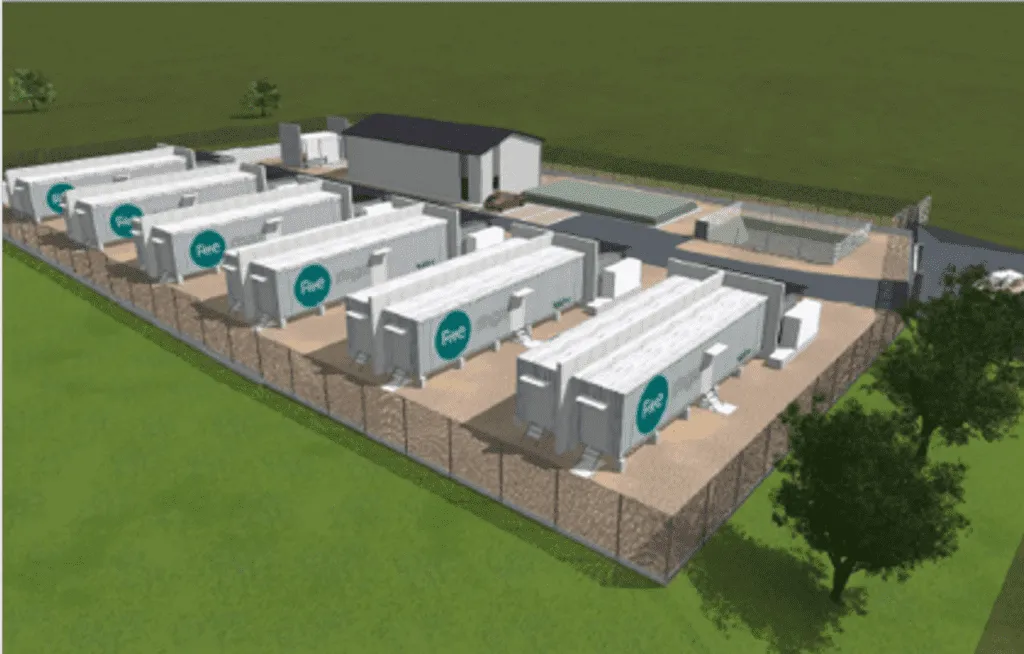Nidec ASI chosen by RTE (Réseau de Transport d’Electricité) for the “Ringo” pilot project, with the aim of expanding the use of large-scale storage systems to enhance energy transition

Milan, 3 March 2020 – Nidec ASI – head of the Nidec Industrial Solutions platform belonging to the Nidec Group – was chosen by the French public electricity transmission system operator, RTE, to realize a full-scale experiment in which an electricity storage system is used to optimize management of energy flows on the transmission grid, in Vingeanne, in the Côte-d’Or department.
This experiment, known as “Ringo”, involves the installation of the first energy storage system on mainland in France and aims to prevent grid congestion at times of peak demand by experimenting with the storage of all surplus renewable energy produced (wind and solar) and its subsequent return to the electricity grid. A project that sees battery storage systems become an integral part of modern electricity grids and key elements for realizing the vision of an electric and sustainable future.
Depending on weather conditions (sun, strong winds), local solar or wind energy production can record peaks and exceed the transport capacity of the national electricity grid, resulting in the dispersion of the energy produced. By storing the excess, the Ringo battery prevents the loss of electricity produced from renewable sources thus contributing to reductions in CO2 emissions, without having to use polluting energy sources. Furthermore, the system makes it possible to better manage the electricity grid, avoiding congestion at times of peak demand.
The Vingeanne site, located in a region of high wind energy production, was chosen as the location for one of the experimental batteries with a storage capacity of 12 MW/24MWh, equal to the amount of energy produced by 5 wind turbines or the consumption of 10,000 families. Work began in January 2020, while commissioning and testing are expected to begin in March 2021.
Specifically, Nidec Asi will supply its power electronics converters and the PMS (Power Management System) control system. The batteries are of the NMC (Nickel, Manganese, Cobalt) high energy density lithium-ion type.
With this experiment, RTE and its partners, among which Nidec ASI stands out, are participating in the development of large-scale electricity storage. A great industrial challenge to meet the fundamental energy transition from polluting to sustainable and renewable sources, necessary to reduce greenhouse gas emissions and mitigate global warming.
The Ringo project meets the renewable energy development goals set by the French government, which at the same time as guaranteeing electrical safety, aims to make the electricity transmission grid more flexible by 2030 and to integrate, in particular, large-scale electricity storage solutions. This storage experiment on three French sites has been approved by the French CRE (Commission de Régulation de l’Energie – Energy Regulatory Commission) for a total investment of € 80 million.
“Once again, Nidec ASI’s ability to offer completely customized solutions tailored to our customers’ various needs has proved to be an effective and winning strategy. Thanks to this ambitious project launched with RTE, we are continuing to contribute to the development of the energy market in a direction of greater sustainability, pursuing the goal of an electric and zero-impact future,” stated Dominique Llonch, CEO of Nidec ASI and Chairman of Nidec Industrial Solutions. “I am really satisfied with the work of the entire Nidec ASI team and I am very proud that our company has been chosen as a reliable partner also by a company like RTE, recognized the world over for its commitment, which we fully share, towards energy transition and the development of a project with a very high level of innovation.”
An agreement totally in keeping with the strategy and vision of Nidec ASI which, thanks to its know-how, the result of over 150 years of technological innovation and a customized approach, wants to actively contribute to the transition towards renewable energy in order to combat climate change and the air pollution generated by the continuous increase in CO2 emissions, favoring the transition from a development model with high carbon emissions to a sustainable and green one.



